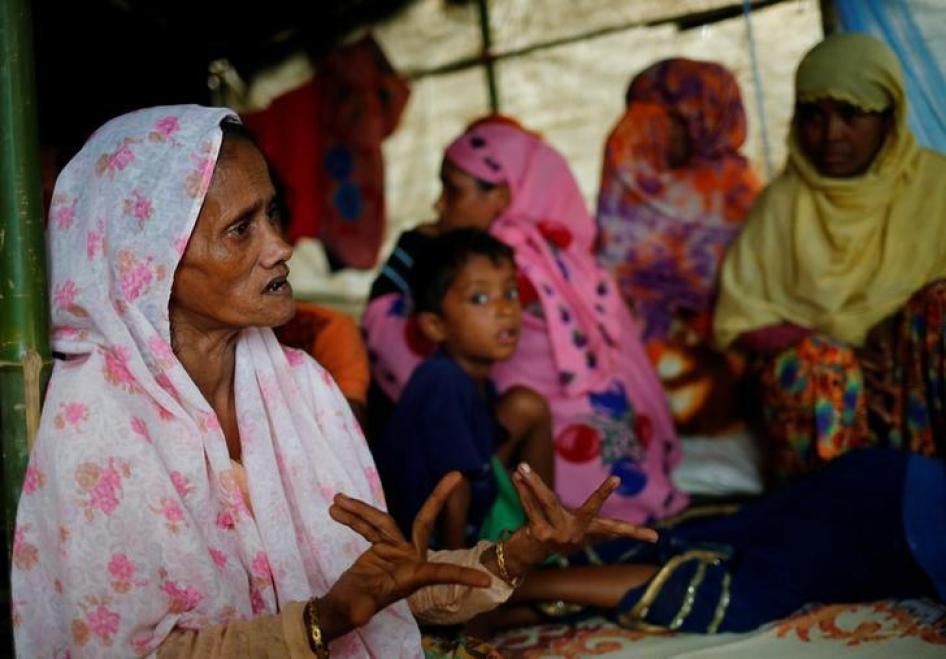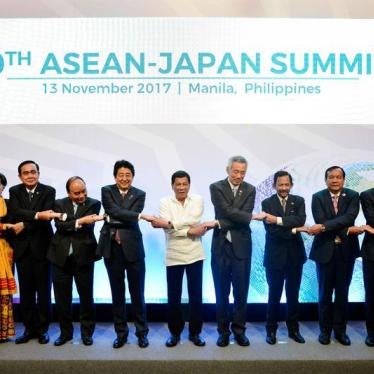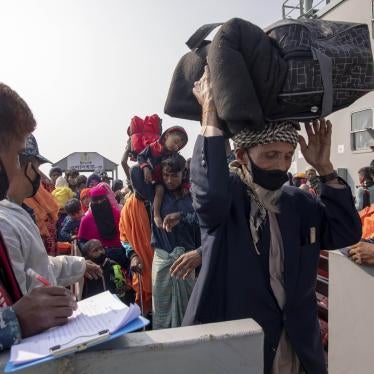Since late August, more than 600,000 ethnic Rohingya, a Muslim minority who live predominately in northern Rakhine state in western Myanmar, have fled to neighbouring Bangladesh to escape the terror unleashed on them by the Myanmar military, which includes murder, rape, and mass arson.
In a humanitarian act praised around the world, Bangladesh opened its borders, assisting the frightened, injured, and starving multitudes that have arrived. Ordinary Bangladeshis have also responded with kindness, collecting and distributing clothes and food. People on both sides of the border know this is not about a “pull factor” in Bangladesh — this is about refugees having the chance to simply survive. Long denied citizenship in Myanmar, the Rohingya have faced repression, discrimination, violence, and displacement for decades.
However, the Bangladeshi government wants the Rohingya to return home. Host communities are feeling the pressure of so many new arrivals. Bangladesh and Myanmar are planning an accord to determine terms for the return of the refugees.
If they had safe homes to return to, most Rohingya — like most refugee communities around the world — say they want to go back. But the conditions for safe and voluntary returns do not yet exist — in fact more refugees are still arriving.
To guide governments and humanitarian agencies as they address the Rohingya refugee crisis, Human Rights Watch has published “10 Principles for Protecting Refugees and Internally Displaced People Arising from Myanmar’s Rohingya Crisis.”
The principles include an urgent call on donor governments to provide generous support to meet the humanitarian needs of Rohingya refugees in Bangladesh and internally displaced people of all ethnicities remaining in Myanmar. Rohingya refugees absolutely have the right to return to their homes, but all returns must be voluntary and safe, with full respect for human rights. World leaders need to press the Myanmar government to end its abusive operations, prevent future atrocities, and create the conditions necessary for Rohingya to return voluntarily in safety and dignity.
While it is premature to discuss the repatriation of Rohingya refugees, the UN and all governments — including the UK, US, and India — should be clear that Myanmar has to stop current attacks against the Rohingya population.
The Bangladeshi government should keep its border open to asylum-seekers and not coerce returns, respecting the principle of non-refoulement, which prohibits the return of refugees to places where they would be persecuted or face a real risk of torture or cruel, inhuman, or degrading treatment.
While refugee camps in Bangladesh may be necessary for providing assistance during a refugee emergency, they are not a sustainable solution. The Bangladeshi government and its humanitarian partners should regard refugee camps as a temporary fix during this crisis and should transition as soon as practically possible to accommodations that are conducive to free movement and that promote dignified self-sufficiency.
Bangladeshi authorities have previously suggested that Rohingya refugees could be relocated from the Cox’s Bazar area to Thengar Char island, an uninhabited, undeveloped coastal island that is highly susceptible to flooding.
Doing so would put Rohingya refugees at greater risk.
Moreover, Bangladesh has obligations under international human rights law to ensure refugees’ rights to freedom of movement, livelihood, food, and education.
The Myanmar government has indicated that Rohingya allowed to return to the country would live in camps for internally displaced people or in a designated area, and Prime Minister Sheikh Hasina has also spoken positively about setting up “safe zones” inside Myanmar. Establishing “safe zones” on the Myanmar side of the border would restrict their movements, reduce their ability to reconstruct their homes, work their land, regain livelihoods, and reintegrate into Myanmar society. Such camps also run the risk of overcrowding, poor sanitation, increased illness, and creating dependency on aid.
Refugees and internally displaced people who were arbitrarily or unlawfully deprived of their homes, lands, properties, or places of habitual residence have the right to return to their place of residence or choice, and the return of their property. Myanmar should respect the rights of those who are unable or unwilling to return to their homes to choose compensation for the loss of their homes and properties.
Crucially, governments, including Bangladesh, should not shy away from calling the Rohingya fleeing for their lives what they are: Refugees. The word is important and using it acknowledges their particular legal rights. The fact that some might also have personal or economic reasons for going to Bangladesh does not forfeit their need for protection and other rights as refugees.
While it is premature to discuss the repatriation of Rohingya refugees, the UN and all governments — including the UK, US, and India — should be clear that Myanmar has to stop current attacks and prevent any future attacks against the Rohingya population.
The Myanmar authorities need to provide justice and accountability for the victims, end the suffering and statelessness of the Rohingya, establish security among all communities in Rakhine state, and ensure the Rohingya’s eventual repatriation in a manner that fully respects their rights and dignity.










